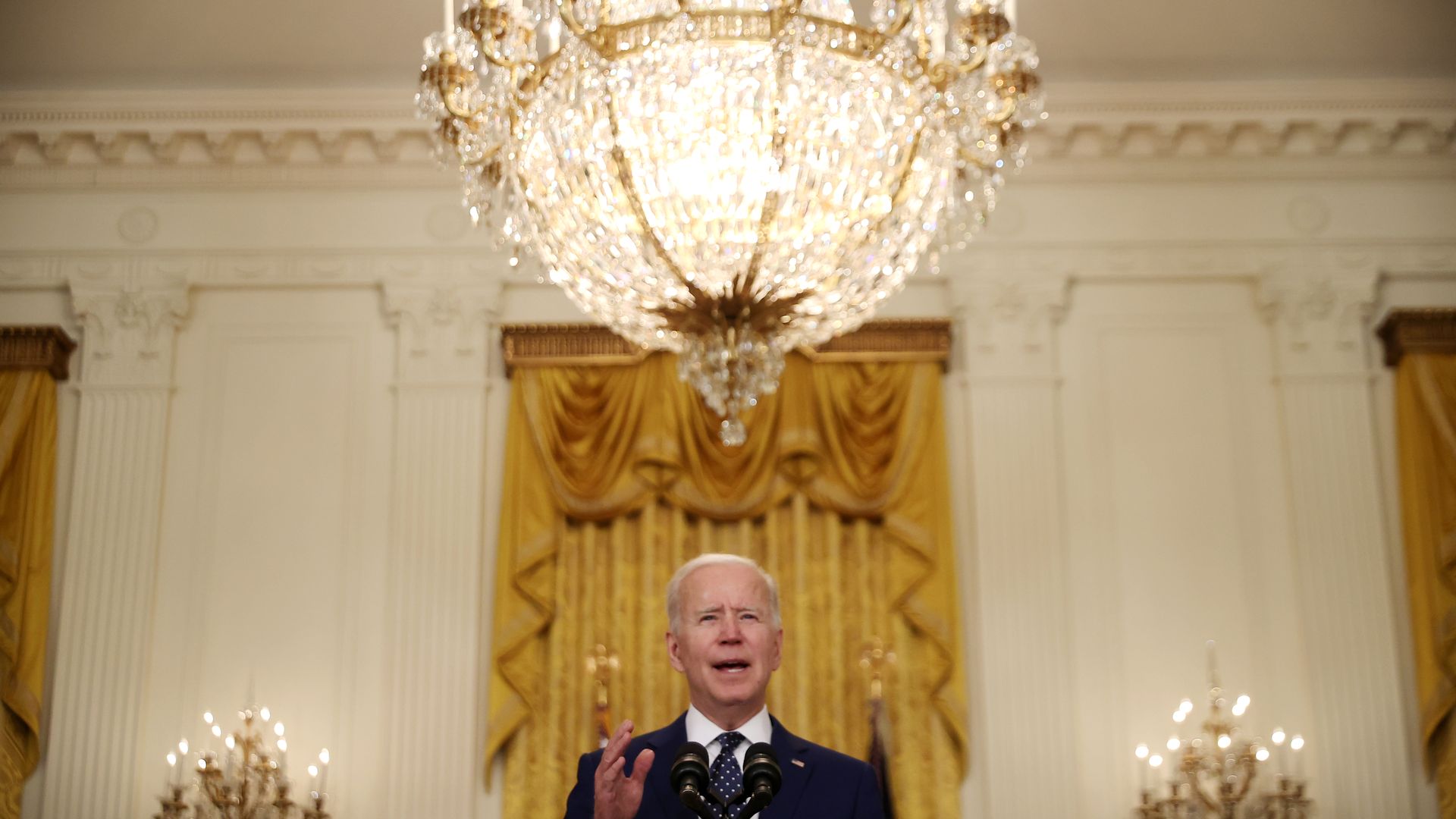Biden's Russian sanctions likely to achieve little
Add Axios as your preferred source to
see more of our stories on Google.

President Biden announces new sanctions against Russia. Photo: Chip Somodevilla/Getty Images
Despite bold talk from top administration officials, there's little reason to think the Russia sanctions package President Biden announced Thursday will do anything to alter Russian President Vladimir Putin's behavior or calculus.
Why it matters: While it's true some elements of the package — namely, the targeting of Russia's sovereign debt — represent significant punitive measures against Moscow, it leaves plenty of wiggle room for the Russian president.
- White House press secretary Jen Psaki defended the action, telling reporters: "We can't predict what the impact will be, but we still believe that when there's unacceptable behavior, we should put consequences in place."
Between the lines: Former Secretary of State Rex Tillerson, who had known and dealt with Putin for years while running Exxon Mobil, used to tell colleagues sanctions did little if anything to deter the Russian leader.
- It's hard to argue against Tillerson's case.
- The U.S. and its international allies have imposed some form of sanctions against Russia every year since 2014, when Putin's "little green men" first appeared in Ukraine.
- Since then, Russia has continued to occupy Crimea and eastern Ukraine; propped up the brutal Assad regime in Syria; hacked U.S. and other Western elections; crushed protests at home; and attempted to assassinate dissidents on foreign soil, among other things.
Yes, but: Where Thursday's sanctions do break new ground is in the cyber realm.
- The U.S. government formally accused Russia's Foreign Intelligence Service of the SolarWinds hack and identified its collaborators in painstaking detail, as German security expert Thomas Rid notes in an illuminating Twitter thread.
- And a ban on U.S. banks directly buying Russian government bonds could create a "broader chilling effect" that will weaken the ruble and have negative implications for inflation and economic growth, a senior administration official told reporters.
- But the ability for investors to continue buying Russian bonds on the secondary market diminishes the overall effect of the restrictions — reflecting Biden's desire to send a clear message to the Russians without taking it too far.
What's missing: Biden notably did not announce sanctions targeting Nord Stream 2, a nearly complete Russian-German pipeline that will bypass Ukraine and deliver Russian gas straight to the European Union.
- On Thursday, Biden described Nord Stream 2 as a complicated issue that remains "an issue in play," and that he opposes the pipeline. The reality is nobody expected him to sanction an ally — Germany — which is the type of action that might actually stop the pipeline from being completed.
What they're saying: "The Ukrainians have not received any assurances from Washington that all possible measures will be taken to stop the pipeline from being built," a source close to Ukrainian President Volodymyr Zelensky told Axios.
- And the list of sanctioned Russians does not target any oligarchs. Jailed opposition leader Alexei Navalny has said targeting the oligarchs would be more likely to deter Putin because of the vast wealth they hold on his behalf.

